10 bizarre ancient practices that have thankfully disappeared
Historians and archaeologists are pretty up to date with what went on in ancient times, but museum exhibits and history lessons often leave out the quirkier side of our ancestors' lives!
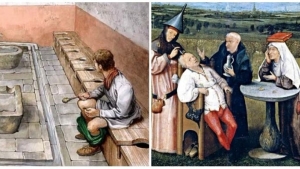
Just check out this selection of fascinating meets frightening practices that were once part of peoples' daily routines! We're sure you'll agree with us that the world is a better place now that these practices have disappeared into the mists of time!
1. Hair dyes that contained lead and sulfur
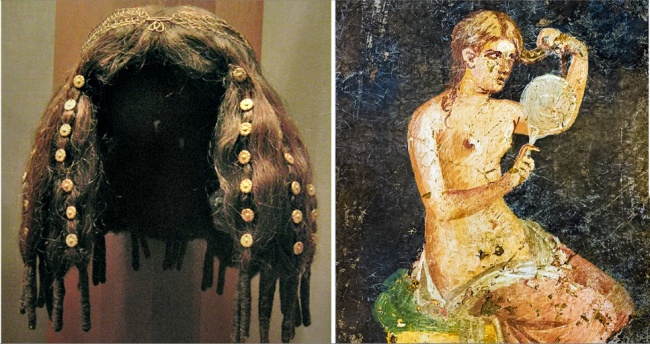
© pinterest © Carole Raddato/Wikipedia
Like many of us today, the ancient Egyptians, Romans and Greeks loved to color their hair. At first they used harmless plant dyes in their quest for luscious locks, but the colors would quickly fade, so women turned to substances that proved to be long-lasting yet deadly - sulfur and lead! Fortunately for us, modern science has proved just how toxic sulfur and lead can be, meaning we can now have glorious manes without compromising our health!
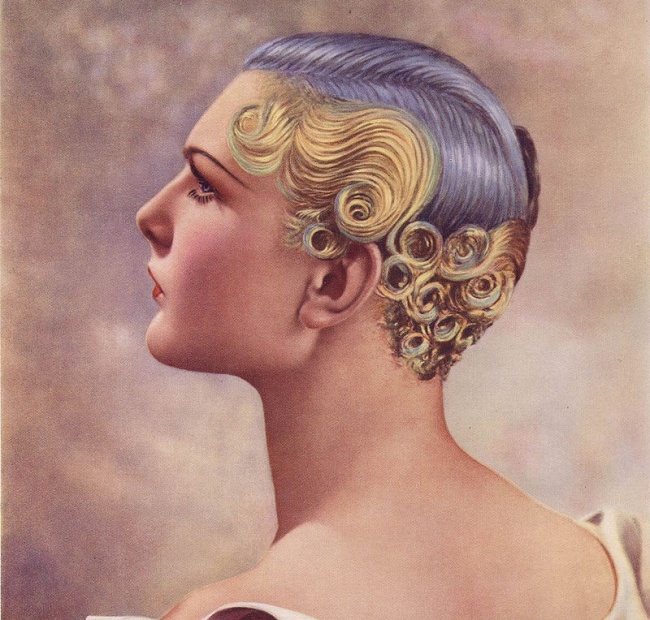
During the 18th Century in Italy, bleached hair was all the rage and people unwittingly used corrosive ingredients designed for doing the laundry. The result? Their hair would fall out! Another curious trend was the widespread belief in Afghanistan that dyeing one's hair would get rid of headaches... Personally we prefer a couple of Advil!
2. Breast implants were made of anything close to hand...
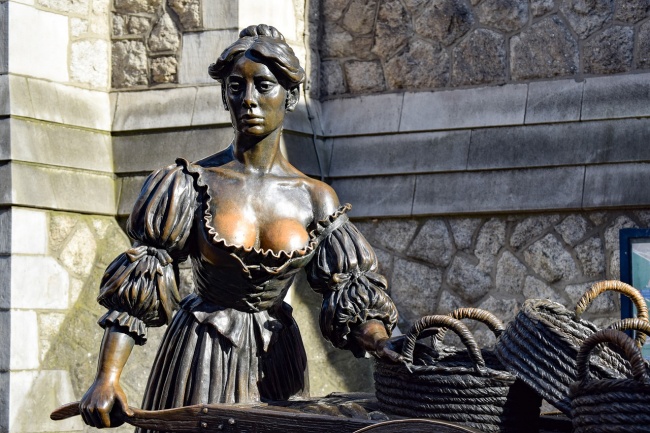
Up until the 19th Century women who wanted to increase their bust size relied on massages, lotions, potions and hot baths. In 1895, a certain Doctor Czerny removed a breast tumor from a patient and attempted to insert an implant. As silicone implants were not yet available, he used a scary mix of ivory, glass balls and ground rubber. Eek!
3. Animal excrement in medications

Nowadays some medical treatments do contain toxic ingredients (strictly controlled, of course), but back in the day animal excrement was often prescribed! Crocodile poo was used as topical contraceptive and in ancient Egypt, soldiers would apply excrement to their open wounds! The Scots, on the other hand, would treat smallpox lesions with sheep poo and stop nose bleeds with pig excrement. Very smelly, extremely dangerous practices that have, thankfully, long-since disappeared!
4. Trepanning to release evil spirits
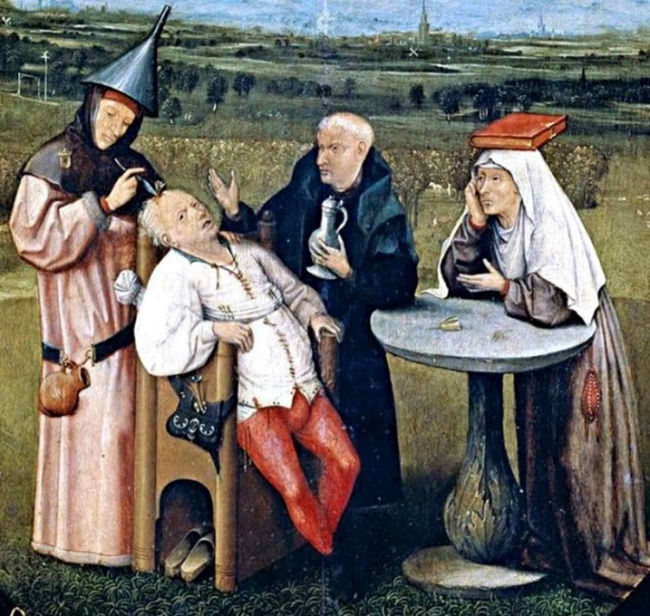
The Dark Ages are also known as the 'Age of Ignorance' and it was during this epoch that trepanning appeared on the scene. Drilling holes in patients' heads was a common practice for treating 'illnesses' that had no apparent origin - these illnesses being attributed to the work of evil spirits. People who suffered from convulsions, migraines and inexplicable infections had a hole drilled in their head in order to release evil spirits and, believe it or not, some patients survived this barbaric practice! Fortunately, trepanning had been phased out by the end of the Middle Ages!
5. Women weren't allowed to cry during funerals
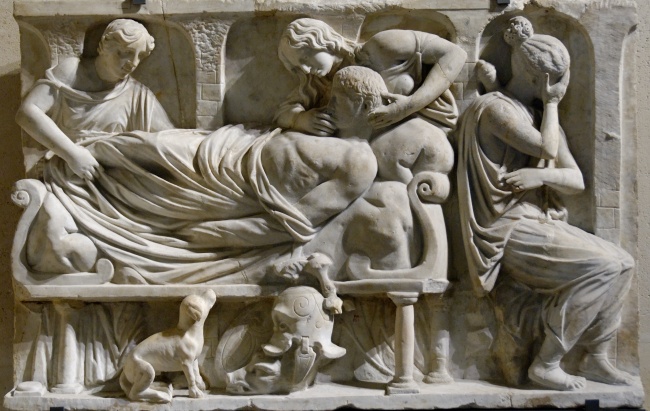
Women played an important role during ancient Roman funerals. They were responsible for cleaning the dead and welcoming mourners, before leading the funeral procession to the deceased's final resting place. The deceased's family, friends and even paid mourners would wail away, as it was considered to be a sign of respect, but this often resulted in a form of hysteria that led to violence. What's more, women would scratch their faces and pull out their hair as a sign of their grief, meaning funerals became a bloody spectacle.
After a while, authorities decided that such extreme fervor was not becoming of 'model citizens' and crying at funerals was banned.
6. Fathers were allowed to kill their daughters' lovers

Ancient Roman men were all powerful. As head of the family, fathers would rule the roost and choose husbands for their daughters. They also did their utmost to prevent their female offspring from having intimate relationships prior to their marriage. If a father found his daughter getting up close and personal with a lover, he had the right to kill them both! Fathers retained a certain hold over their daughters once they were married in that the newly wed bride kept her father's surname for life. Why? Because a woman belonged firstly to her father with her husband taking second place.
7. Fathers could sell their sons into slavery

Sons in Ancient Rome were also beholden to their fathers, who could decide if they wanted to keep or sell-off their boys. It wasn't a common practice to sell one's son into slavery, but if money was tight, this was considered an income-boosting option.
8. Weird pregnancy tests

In pre-ultrasound days pregnancy tests were unorthodox to say the least! Take garlic for example... A clove of garlic or slice of onion would be inserted into the vagina and the next day the woman's breath would be tested. If her breath didn't stink of garlic (or onion) it meant that a fetus was preventing the odor from reaching her mouth and the woman would be declared pregnant!
Another common test was to get a woman to pee on wheat or barley grains. If the grains germinated, she was pregnant. Both doctors and the general public relied on this strange pregnancy test, but at least we can understand the logic that a liquid could cause seeds to germinate. Quack doctors, however, would simply decide if a woman was pregnant by the look in her eyes...
9. Egyptians would shave off their eyebrows when mourning the death of their cat
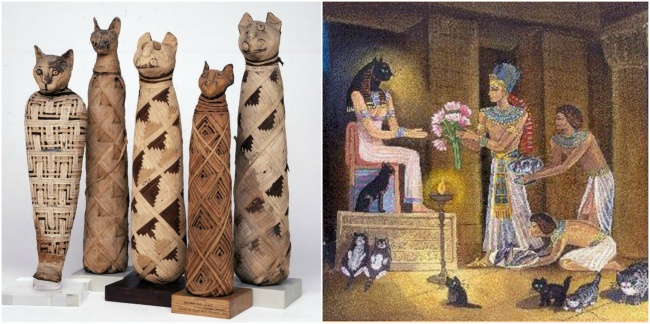
Ancient Egyptians believed cats were magical creatures that could protect their owners. Cats were pampered, worshipped and even adorned with precious stones. Anyone who killed a cat was executed! Cats had their own goddess - Bastet - and when they died they were mummified. When a much-loved family cat died, their owners would shave off their eyebrows and their mourning period would only end when their eyebrows had grown back.
Interesting fact: numerous historical figures suffered from ailurophobia (AKA cat phobia), including Alexandra the Great, Julius Caesar, Genghis Khan, Napoleon and Hitler.
10. Communal restrooms in Ancient Rome

Archaeological digs have proved how obsessed Ancient Romans were with personal hygiene. Towns had sewerage systems alongside numerous baths and public restrooms, the latter designed for people who weren't able to install private bathrooms in their homes. So poorer citizens would head to public restrooms that comprised of wooden or stone planks with holes over which they could sit. Their urine and excrement would flow down open pipes to the town's sewerage system. Although the idea of going to the toilet in front of others is disgusting to us today, back then it was quite a social affair!

By Straker Julia
Writer
Passionate about writing, I write articles on the subjects that I love. Creativity and Animals themes are my favorites!


